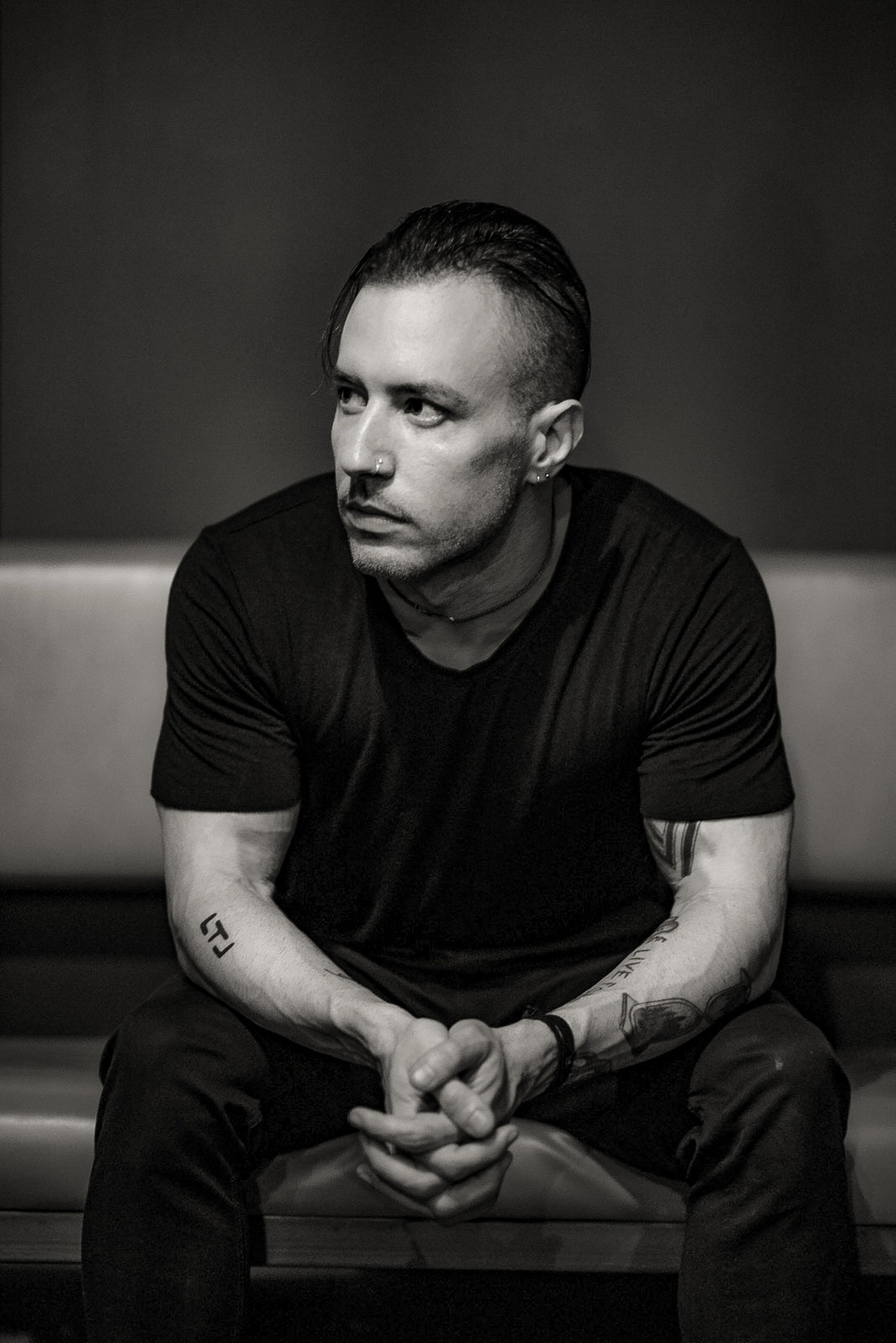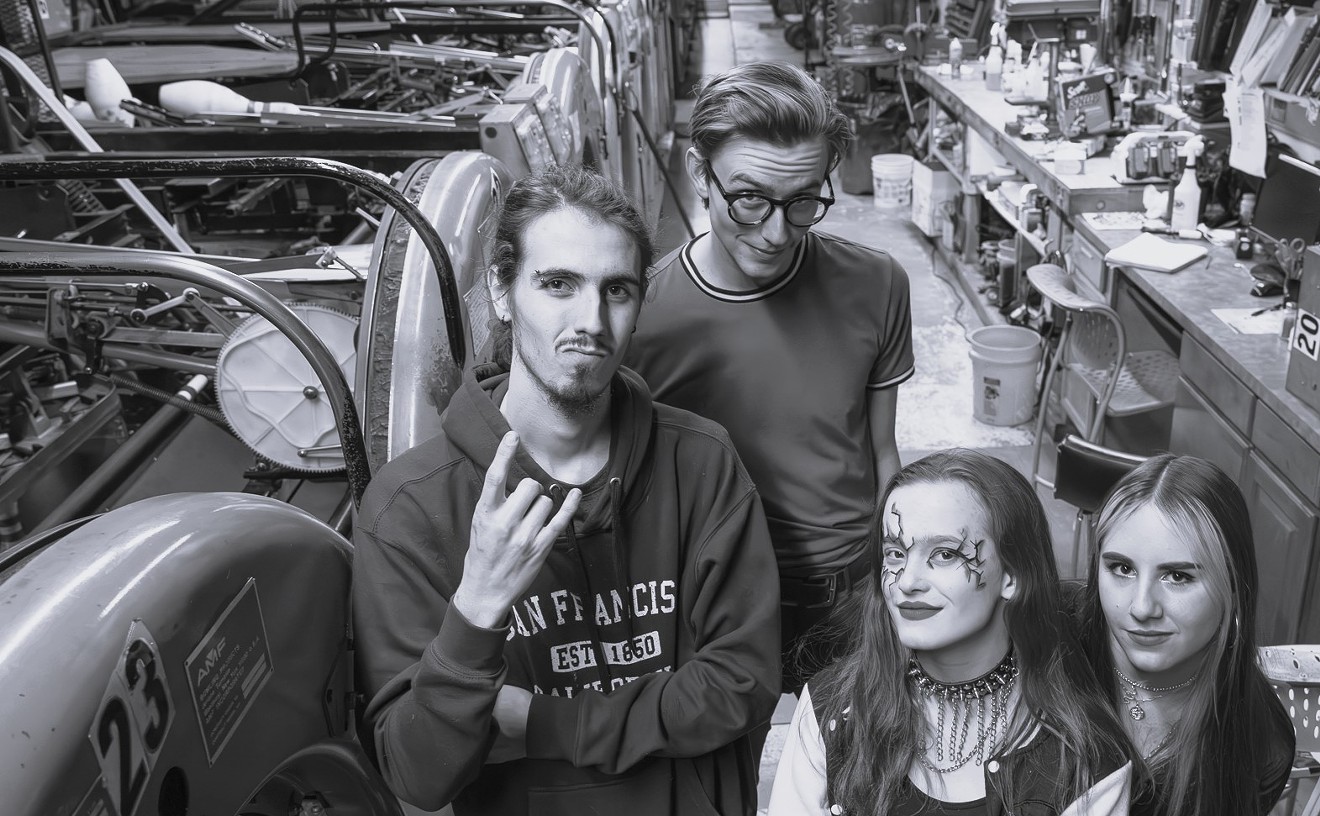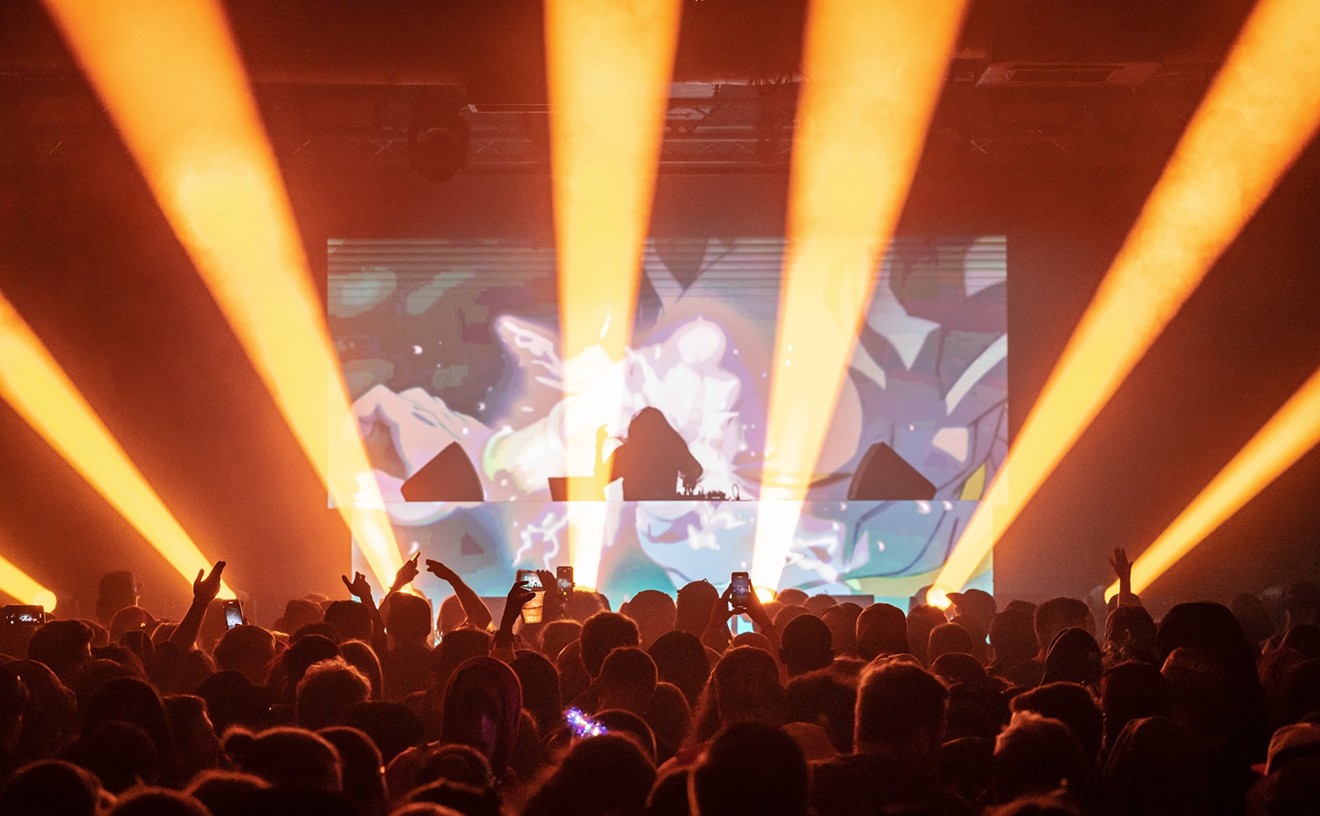As his longtime band, the Dillinger Escape Plan, embarked on its final tour and his new project, the Black Queen, was beginning, singer Greg Puciato was battling mental health issues. To cope, he channeled his lifelong love of writing and newfound passion for photography into a massive body of cathartic work.
After the Escape Plan tour wrapped up, in 2017, Puciato took time to assess the hundreds of thousands of words he had written and the thousands of photos he'd shot in recent years. He decided to create a book called Separate the Dawn, a title he’d been considering for a potential solo album. He secretly went to work synthesizing the starkly introspective, raw volume of self-analysis.
The resulting 226-page book was released on February 12 to wide praise, with both the first and second pressings selling out within four days. We caught up with Puciato ahead of the Black Queen's March 19 concert at the Marquis Theater to discuss his first publishing project and how it helped him find more stable mental ground.
Westword: Do you do much editing, revising or rewriting of your poetry or lyrics?
Greg Puciato: The writing in Separate the Dawn is all completely unedited. If anything, there may have been lines that were deleted just because they were excessive. It was just beating the point too far, and I might have just cut lines off the end of something. But everything in there is pretty unadulterated, which is different than lyrics. A lot of lyrics – I end up revising things just to have them sound better phonetically.
When I write something — and I believe this about lyrics, too — I don't like to change what I wrote too much. I feel like you should try to get as much of a snapshot as possible. The more you mess with it, the more you're getting it away from the source. What I've found with writing is that the things that hit people the hardest are the things that I've tweaked the least. So I'm really adamant about leaving them alone, even if I think I could make them more flowery or something. That's not the point. It’s not the point to play the most notes when you write a guitar solo.
The content in the book was written and shot during the final DEP tour, as you grappled with serious mental health issues. How do you feel, reflecting on that work now?
When I think about the book, it's like a foreign object. The whole time period seems so foreign to me that it's getting harder and harder for me to talk about, because I don't feel the feeling in it that often anymore. I had such severe depression, such severe anxiety and such a severe panic disorder and hypochondria. The hypochondria was really intense. There were just years of anxiety-related things like body dysmorphia and agoraphobia and all this shit going on that I don't even recognize now. It was so acute and so severe, and I really believed that that was my new reality. At that point, I couldn’t remember the me without that.
I was like, “This is the new person I have become. I am just a leaf at the end of a twig. I used to feel like this strong person, and now this is the new me. I just have to deal with it however I can.” And that was the book, and it was really interesting. I think when the book came, it really freed me from — and I find this with any release — it freed me from the time period that had manifested itself into that work. With the book, it was more severe in that way than any record I had ever done.
Ultimately, it's a little bit disorienting, because the book kind of just came out. To other people, it seems really fresh, but it’s starting to feel really far away for me, and that's really nice, because it was such a terrible time period. I have never felt like that in my life. I don't romanticize it in any way. I'm glad that I was able to use it to create something instead of wallowing in it and drinking or doing drugs to death or some other self-destructive habit.
Could you imagine being in this more stable mental state without that catharsis? Without the book?
No, because I think that everything is tied to your psychological journey. I have gotten more aware of that and more aware that an album or any release is an opportunity for growth. The only way you can grow is really by digging in yourself and looking at what you find. Dumping your insides out and taking stock of it. On the last few Dillinger records and Black Queen releases, I was already in that mindset of really trying to use records to help force myself forward psychologically. But the book was such an accident and so unexpected that I didn't know that was even in there.
What else helped you confront the demons you were finally coming face to face with through the sorting of content for the book?
I started going to therapy, and I've told plenty of people that therapy is one of the best things I've ever done. Therapy and psychedelic drugs [laughs]. I think just a combination of therapy, art, self-analysis and medication — those are the things that I'm happy to talk about with people. I'm glad we're reaching a point where those things aren’t so stigmatized anymore.
And it hasn't made me less creative. That’s the thing I believed forever, that if I went on medication or saw a therapist, I would become less creative, and it’s absolutely untrue. You are just as creative. You are just not redundant and stuck in a fucking loop, talking about the same thing over and over again because you haven't resolved it.
Let’s discuss that point for a second. I read a quote where you refute the romanticized idea of negativity as the only place art can come from. How has your relationship with negativity versus productivity changed as you’ve grown through this trauma? Are you feeling just as productive now that you’ve been able to free yourself from some of that negativity?
What I have learned is that you have this thing in you, and the idea that you can ever be on the other side of that thing is a little dangerous. I'm not going to pretend that the things that have bothered me in the past aren't things that still bother me. They do; I just don’t let them run me. Now if I have them in me, it's not as much, and I know that I can let it out and deal with it.
The idea that you're going to root them out and get them out of you, I don't believe. I can feel everything in me that drove any bad habit or any feeling of depression or even self-destruction or suicide or aggression that I’ve ever had. I can feel it as I'm talking to you right now, and how powerful it would feel if I were to let that out. It’s like becoming Darth Vader or something. I know how it feels to feel like you're a fireball, and you're just going to burn everything around you, and you're going to burn your fucking self. But I also know where that goes, and I know the long-term rewards of that are nonexistent.
As far as the romanticization of negativity as a source of art, I believe it is a place where art comes from, but I don't believe that it’s the only place it comes from. Are you going to tell me that Dr. Seuss is less creative than Stephen King? No, of course not. Not everything has to come from negativity to be creative. Once you're over that mindset, it frees you in a lot of ways. Especially in putting out the TBQ stuff, or even some of the poems that aren't depressing and are somewhat beautiful or love-oriented or hopeful; having people respond in a positive way to those is freeing. It just shows that your creativity can go wherever you want it to go.
The Black Queen, with Uniform and SRSQ, 7 p.m. Tuesday, March 19, Marquis Theater, 2009 Larimer Street, Denver, $20-$22, themarquistheater.com.
[
{
"name": "Air - MediumRectangle - Inline Content - Mobile Display Size",
"component": "12017618",
"insertPoint": "2",
"requiredCountToDisplay": "2"
},{
"name": "Editor Picks",
"component": "17242653",
"insertPoint": "4",
"requiredCountToDisplay": "1"
},{
"name": "Inline Links",
"component": "18838239",
"insertPoint": "8th",
"startingPoint": 8,
"requiredCountToDisplay": "7",
"maxInsertions": 25
},{
"name": "Air - MediumRectangle - Combo - Inline Content",
"component": "17261320",
"insertPoint": "8th",
"startingPoint": 8,
"requiredCountToDisplay": "7",
"maxInsertions": 25
},{
"name": "Inline Links",
"component": "18838239",
"insertPoint": "8th",
"startingPoint": 12,
"requiredCountToDisplay": "11",
"maxInsertions": 25
},{
"name": "Air - Leaderboard Tower - Combo - Inline Content",
"component": "17261321",
"insertPoint": "8th",
"startingPoint": 12,
"requiredCountToDisplay": "11",
"maxInsertions": 25
}
]











